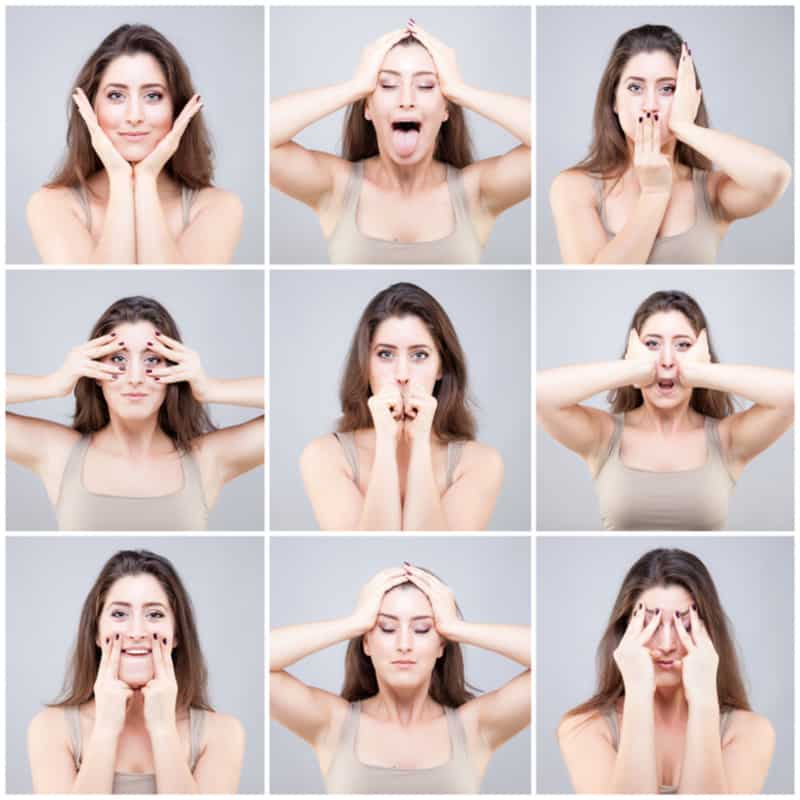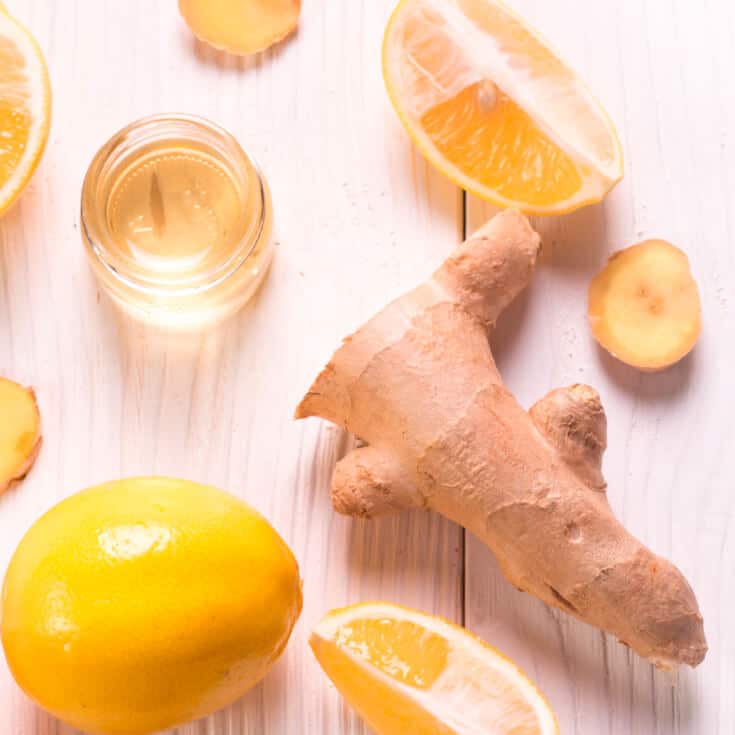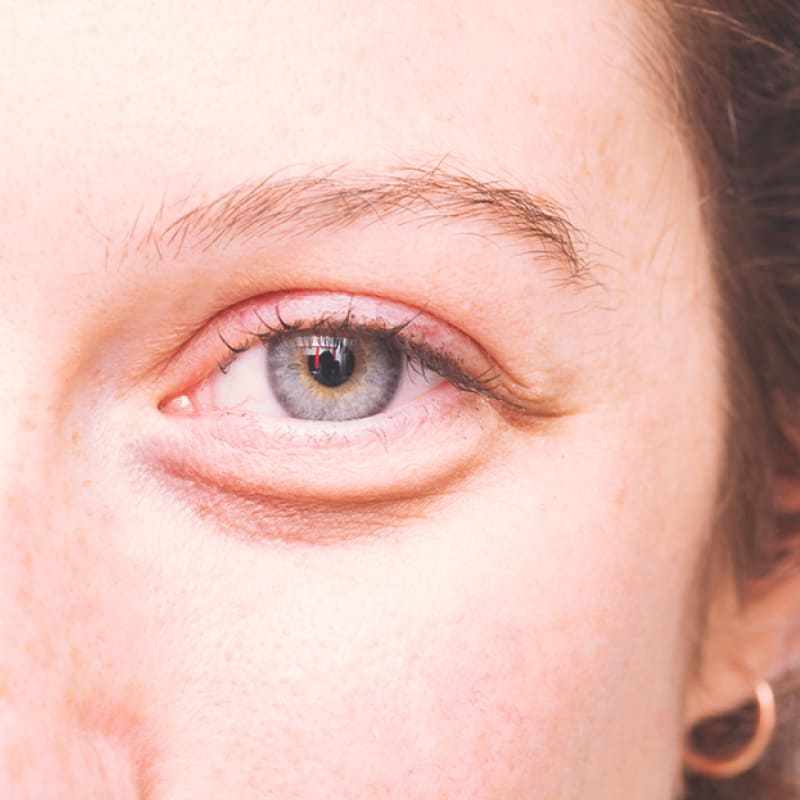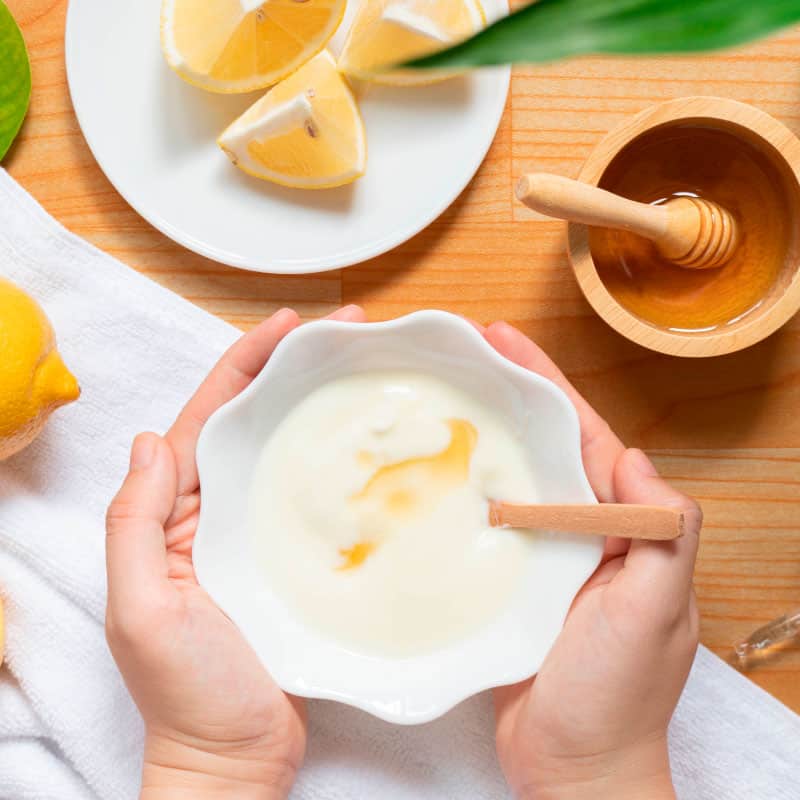This Dr. Axe content is medically reviewed or fact checked to ensure factually accurate information.
With strict editorial sourcing guidelines, we only link to academic research institutions, reputable media sites and, when research is available, medically peer-reviewed studies. Note that the numbers in parentheses (1, 2, etc.) are clickable links to these studies.
The information in our articles is NOT intended to replace a one-on-one relationship with a qualified health care professional and is not intended as medical advice.
This article is based on scientific evidence, written by experts and fact checked by our trained editorial staff. Note that the numbers in parentheses (1, 2, etc.) are clickable links to medically peer-reviewed studies.
Our team includes licensed nutritionists and dietitians, certified health education specialists, as well as certified strength and conditioning specialists, personal trainers and corrective exercise specialists. Our team aims to be not only thorough with its research, but also objective and unbiased.
The information in our articles is NOT intended to replace a one-on-one relationship with a qualified health care professional and is not intended as medical advice.
Top 10 Natural Treatments for Thinning Hair
March 26, 2018
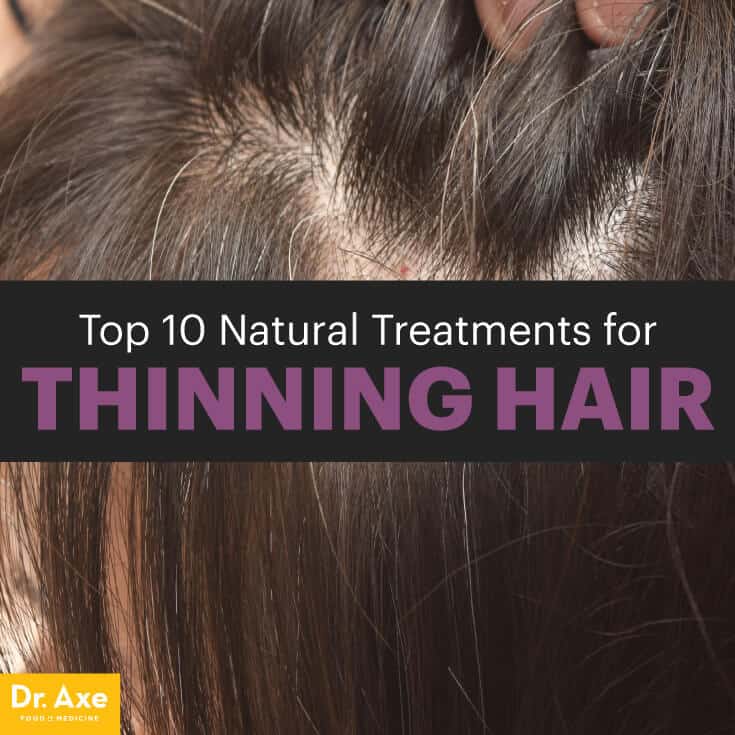
Men and women of all ages yearn for thicker, fuller hair, especially when thinning hair becomes a visibly noticeable problem. Thankfully, there are natural treatments for thinning hair like balancing hormones, reducing stress, eating a proper diet and more.
The average adult head has about 100,000 to 150,000 hairs and loses around 50 to 100 hairs each day. (1) That may sound like a lot, but it’s actually completely normal. You might think that losing so many hairs would make your hair look thinner, but that’s only if the normal process of new hair growth isn’t up to speed. As long as hair regrowth and hair loss are in proper balance, hair thinning isn’t a problem, but for a lot of people hair loss is a daily concern. Aside from the less than ideal appearance of thinning hair, there is the greater fear that the thinning will turn into permanent hair loss and baldness.
What causes hair loss and hair thinning? Are there vitamins for hair growth? Before you get alarmed, I hope you read this article, which will not only give you hope, but also provide actual proven natural treatments for thinning hair. For starters, nutritional deficiencies are often a cause of thinning hair. Dr. Wilma Bergfeld, a prominent Cleveland Clinic dermatologist who specializes in hair loss, has found that low iron levels contribute to hair loss. (2) This is just one of the causes of hair thinning that can be addressed using natural treatments for thinning hair like diet, natural supplements, essential oils and more.
10 Natural Treatments for Thinning Hair
With some conditions, such as hair thinning, resulting from a traumatic life event, getting your hair back on track is just a matter of time and patience. If you know your hair loss is not at temporary problem or you’re just looking to regain a prior level of thickness, these are the some of the natural treatments for thinning hair that will hopefully help to get your hair growth back on a healthy track.
1. Rule Out Medications
It’s important to make sure that you don’t take medications that could actually cause hair thinning. There are many medications that have been linked to hair loss. Make sure you know the possible side effects of your current medications as well as your supplements. If you know one of them may cause hair loss, that could be the culprit right there. Below I list some of the most common medications that can contribute to thinning hair and hair loss.
2. Herbs
Saw palmetto extracts and supplements can work well for hair thinning because they keep testosterone levels balanced. Opinions about saw palmetto as an effective hair growth agent are mixed, but there are studies that indicate it to be beneficial.
One study conducted at the Clinical Research and Development Network in Colorado tested 34 men and 28 women, aged 18–48 years, who topically applied saw palmetto extract in lotion and shampoo base for three months. The results found that 35 percent of the participants had an increase in hair density. (3)
Ginkgo biloba is an herb that can help strengthen the hair shaft, which discourages hair thinning. It also encourages blood flow and an antioxidant boost. As a standardized extract, you can try 40 to 80 milligrams three times daily. (4)
3. Reduce Stress
By decreasing your daily stress, you can have a direct impact on the health of your hair as well as your entire body. (5) Journaling and yoga are great natural stress relievers. Daily exercise is also crucial to stress reduction as well as encouraging good circulation, which both help promote healthy hair growth.
4. Balance Hormones
From diet to exercise to adaptogen herbs, check out my 10 ways to balance hormones naturally. Balancing your hormones can help with correcting thyroid health issues or other hormonally linked underlying causes of thinning hair.
5. Foods that Help
You’ll definitely want to increase your intake of nutrient-dense whole foods if you’re hair is thinning. There is a very strong link between what you eat and the health of your hair. According to Whitney Bowe, MD, a board-certified dermatologist, “One of the first ways I can tell how healthy someone is — and if they’re eating nutritiously — is by looking at their hair.” (6)
Here are some of the top foods you can make use of as natural treatments for hair thinning hair: (7)
- Wild-caught, cold-water fish — Lean, anti-inflammatory protein in the form of wild-caught, cold-water fish like salmon is loaded with anti-inflammatory omega-3 fatty acids, which are excellent for hair health.
- Grass-fed beef — Iron-rich protein like grass-fed beef can really help the health of your hair. Why? The hair follicle and root are fed by a nutrient-rich blood supply. If you have an iron deficiency (a common underlying condition with hair thinning), then the follicle becomes nutrient-deprived, and this negatively affects the normal cycle of hair growth and can lead to excessive shedding of hairs.
- Iron-rich vegetables — You can also improve your iron levels by including lentils, kale, spinach and other dark leafy green vegetables in your diet.
- Vitamin C-rich produce — Getting enough vitamin C in your diet is essential on its own because it’s a powerful antioxidant. It also helps your body absorb the iron it needs. Some awesome vitamin C foods include guava, red pepper, kiwi, papaya and broccoli.
- Vitamin A-rich foods — Foods high in vitamin A can help maintain the health of your scalp, which is essential to healthy hair growth. Vitamin A helps make the sebum that conditions your scalp. Great food choices include pumpkin, sweet potato and kale.
- Biotin-rich foods — If you don’t get enough biotin in your diet, it can lead to dry, brittle hair that’s more prone to thinning. Foods that are rich in biotin include nutritional yeast and egg yolks.
- Zinc-rich foods — Zinc is yet another nutrient that’s key to overall hair health and a deficiency is linked with hair loss. Zinc is involved in tissue growth and repair including hair. High-zinc foods include grass-fed beef, pumpkin seeds and chickpeas.
6. Foods that Hurt
To discourage thinning hair, you also want to avoid some foods, including:
- Potential food allergens — If you consume foods that cause allergic reactions in your body, you increase inflammation, which is counterproductive to healthy hair growth. Possible food allergens include wheat (gluten), dairy, corn, soy, preservatives and food additives.
- Trans fatty acids — Trans fats have been shown to increase inflammation and production of DHT, which can cause hair loss. Stay away from all vegetable oil, corn oil and soybean oil.
- Sugar — Sugar imbalances hormones, increases DHT and causes inflammation, all leading to hair loss.
- Processed foods — Processed foods contain chemicals that can disrupt hormone balance.
- Alcohol — Alcohol an increase inflammation and and cause liver toxicity, leading to hair loss.
- Caffeine — Too much caffeine can cause dehydration, hormone imbalance and production of DHT.
7. Natural Supplements
According to the University of Maryland Medical Center, the following supplements may help with underlying nutrient deficiencies, inflammation and stress that can cause or contribute to thinning hair:
- A multivitamin daily, containing the antioxidant vitamins A, C and E; the B-complex vitamins; and trace minerals, such as magnesium, calcium, zinc and selenium.
- Omega-3 fatty acids, such as fish oil, 1 to 2 capsules or 1 tablespoon of oil daily, to help reduce inflammation.
- Vitamin C, 500–1,000 milligrams, 2 times daily, as an antioxidant.
- L-lysine, 500–1,000 milligrams daily, for hair loss.
- B-complex vitamins, 1 tablet daily, for stress.
- MSM — MSM has been shown to help boost both collagen and keratin levels, two nutrients we absolutely need to form new hair strands (and also rebuild strong nails and skin cells).
Bone broth or a protein powder from bone broth is another smart idea if you’re looking to improve your hair quality. Bone broth is rich in protein, collagen, gelatin, glucosamine, chondroitin and key minerals often missing from the average diet. These vital nutrients support optimal hair health, as well as health of skin and nails. There are so many delicious recipes that make it easy to incorporate bone broth powder into your diet. One of my favorite recipes is Paleo Protein Pancakes.
8. Shampoos and Conditioners
I highly recommend a natural shampoo and conditioner that includes biotin. Biotin is a B vitamin that helps make your hair, skin and nails stronger. According to studies, taking biotin internally can also help treat weak hair and nails. (8)
Glycerin is another ingredient that may help thinning hair. A 2017 study found a moisturizing hair product with a 5 percent glycerin solution could draw water from the environment into the scalp and provide hydration.
9. Cooler Showers
Dr. Ryan Welter, a Boston-based hair transplant surgeon, warns that hot water dehydrates hair strands, leading to dry, brittle hair that’s more prone to snap and fall out. (9) So avoid hot showers that can dehydrate hair, making it weaker and more prone to thinning. A lower temperature on hair (and skin) will help preserve moisture.
10. Essential Oils
- Rosemary is one of the top essential oils when it comes to enhancing hair thickness and growth. Rosemary oil is believed to increase cellular metabolism that stimulate hair growth. Research published in 2015 even showed that rosemary oil appears to work as well as minoxidil, a conventional topical hair loss treatment. (10)
- Spikenard oil is known for promoting the growth of hair and slowing down the graying process of graying. A 2011 animal study found that spikenard oil showed positive effects on hair growth activity. When using spikenard extract, there was a 30 percent reduction in the time it look for the hair to grow back on the tested rats, which makes it promising for human use. (11)
Peppermint oil and sage essential oil are also recommended to promote hair growth. You can try mixing three to four drops each of rosemary, peppermint and sage essential oils in one tablespoon of olive oil or coconut oil, then massage the mixture into the thinning area(s) once or twice a day. You can also try this recipe for my Homemade Rosemary, Cedarwood & Sage Hair Thickener.
Causes and Risk Factors for Thinning Hair
As your hair continues to thin, you probably want to ask, or even scream, “Why is my hair falling out?!” It’s a very frustrating and often bewildering occurrence when the hair thins. According to Mayo Clinic, the exact cause of abnormal hair loss is not completely clear, but typically it’s related to one or more of the following: (12)
- Heredity (family history)
- Hormonal changes
- Medical conditions
- Medications
- Physical or emotional shock (sometimes called a “trigger event”)
- Excessive hair styling and/or hair treatments
1. Heredity
The No. 1 reason why both men and women experience excessive hair thinning and hair loss is hereditary. For men, it’s a more well-known phenomenon called male-pattern baldness, but women can also exhibit female-pattern baldness. Both of these predictable, gradual hair loss patterns are linked with a family history of hair loss. For men, it can start as early as puberty. In addition to thinning hair, men may also notice their hair becoming shorter, softer and finer.
2. Hormonal Imbalances
Hormone imbalances and changes can contribute to thinning hair. Some hormone changes are temporary, like with pregnancy or menopause, and hair thinning or loss resulting from these temporary changes should be temporary as well. However, if you have an ongoing imbalance of hormones, you may have a thyroid problem that needs to be corrected.
Polycystic ovary syndrome (PCOS) is another possible causes of hair thinning for women. It’s linked to a hormonal imbalance that can cause hair to grow in the wrong places (like the face) but thin out in desirable locations (like the scalp). Sometimes hair thinning is the only obvious indicator of PCOS. (13)
3. Thyroid Problems and Other Medical Conditions
Health problems that can cause hair thinning include thyroid problems (both hypothyroidism and hyperthyroidism), PCOS, lupus, certain types of cancer, pituitary gland diseases, heavy metal poisoning, HIV and other chronic medical illnesses. (14)
4. Medications
Many different types of medicines may contribute to hair thinning, including some of the following types of medications: (15)
- Acne medications
- Antibiotics
- Antidepressants
- Antifungal medications
- Blood thinners (anticoagulants)
- Chemotherapy medications
- Cholesterol-lowering medications
- Epilepsy medications (anticonvulsants)
- High blood pressure medications (antihypertensives)
- Hormone replacement therapy — estrogen or progesterone for women, androgens and testosterone for men
- Immunosuppressant medications
- Interferons
- Mood stabilizers
- Nonsteroidal anti-inflammatory medications (NSAIDs)
- Oral contraceptives
- Parkinson’s disease medications
- Steroids
- Thyroid medications
5. Trigger Events
When a person undergoes an intense shock, whether it be physical or emotional, this can result in a temporary thinning of hair that can last for several months after the shock. A death in the family, surgery, and sudden or excessive weight loss are all examples of trigger events that can be shocking to the body and resulting in hair thinning.
6. Hair Management
Too much styling and overheating of hair can also contribute to thinning hair. Coloring, straightening and extensions can all cause the hair to become dry and brittle, resulting in strands or entire sections breaking off. Pulling the hair back too tightly can also contribute to thinning.
7. Other Risk Factors
There are several risk factors of hair loss. Family history or heredity is a cause as well as a risk factor of a thinning hair line. Other possible risk factors include age, stress, inadequate nutrition and certain chronic medical conditions, like diabetes and lupus. (16)
How Thinning Hair Occurs in Women vs. Men
A healthy scalp has around 80 percent of its hair follicles in the growing stage while the other 20 percent is in the resting stage. Hair thinning and loss occur when that vital growing state either slows down considerably or stops.
What causes hair to thin out for women? Just like our bodies change with age, most women notice some hair thinning as they get older. This is quite natural. It’s said that by the age of 50, half of women will complain of hair loss. If a woman’s thinning hair is related to female-patterned hair loss, then the thinning is believed to be 90 percent genetic and 10 percent hormonal. You’ll probably be surprised to learn that female-pattern baldness affects about 30 million American women. (17) You can’t change your genetics, but thankfully, you can work on the hormonal aspect (more on that shortly).
Thinning hair in women typically occurs slowly all over the entire scalp without a recession of the hair line (like is common in men). If a woman has female-pattern hair loss, it can lead to extreme hair thinning but rarely leads to baldness.
What about thinning hair in men? For men, hair thinning can start as early as puberty and progress for many years to come after that. The thinning usually begins above the temples and travels around the perimeter and top of the head. Ultimately, this can result in a ring of hair often referred to as a “horseshoe” remaining along the bottom of the scalp. For a lot of men, hair thinning continues until there is no hair left resulting in a completely bald scalp.
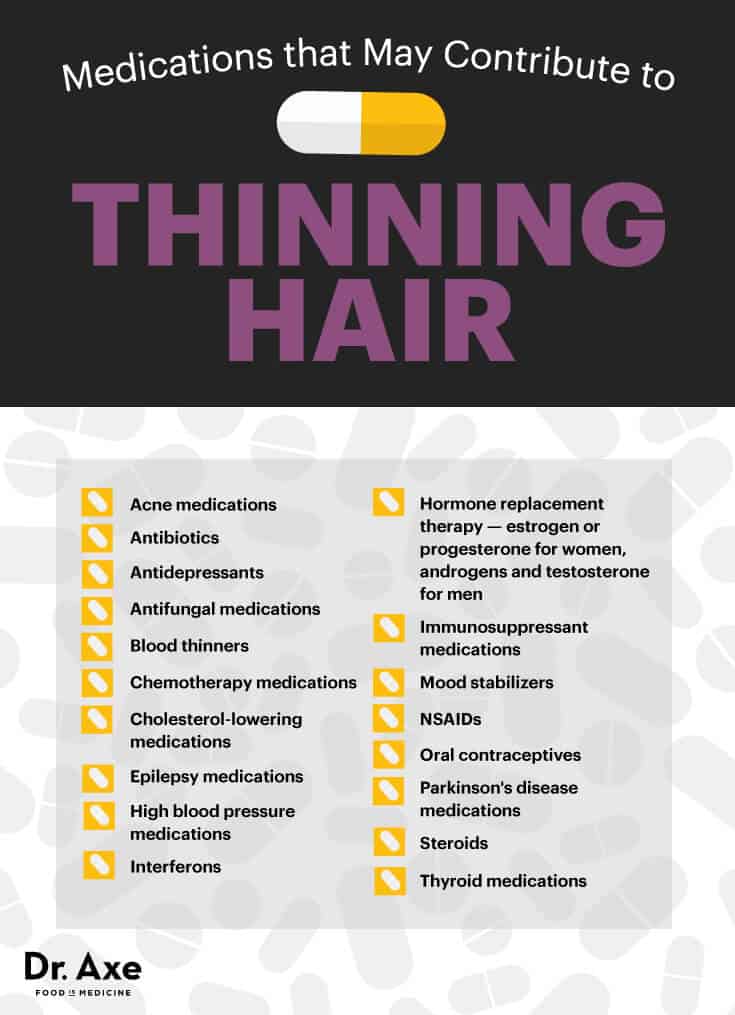
Conventional Treatment for Thinning Hair
Conventional treatments for thinning hair include medications and surgery.
When hair is caused by an underlying disease, conventional medicine likely includes drugs like prednisone to reduce inflammation and suppress the immune system. Common side effects of prednisone include confusion, headache, restlessness, nausea, vomiting, thinning skin, acne, sleep problems and weight gain. (18)
There are also two drugs on the market today that are approved by the Food and Drug Administration to treat pattern baldness or thinning. The first one is minoxidil, commonly known commercially as Rogaine, and it can be used by both men and women. You may experience hair regrowth or a decreased rate of hair loss, but the growth is not permanent and will stop if you stop using it. Some common side effects may include severe scalp irritation, undesirable growth of facial hair, chest pain, rapid heart rate (tachycardia) and more.
Another conventional option in pill form is called finasteride. Again, you need to keep taking it to retain benefits. Additionally, women who are or may be pregnant need to avoid touching crushed or broken tablets. Side effects may include impotence, loss of interest in sex, trouble having an orgasm, abnormal ejaculation, swelling in your hands or feet, feeling faint,
headache, runny nose, and skin rash. (19)
For both men and women, hair replacement surgery or a hair transplant uses your existing hair to fill in the areas of significant hair thinning. Low-level laser therapy is also a more recent option for people experiencing thinning hair, but many doctors reject this option completely.
Precautions Regarding Natural Treatments for Thinning Hair
Check with your doctor before using any conventional or natural treatments for thinning hair if you’re pregnant, breastfeeding or have any ongoing medical issues.
Conventional hair thinning treatments come with a lot of highly concerning side effects you should take into consideration, as I already mentioned, which is why I always recommend natural treatments for thinning hair.
Final Thoughts on Natural Treatments for Thinning Hair
I hope you find these natural treatments for thinning hair to be effective. Remember that change won’t happen overnight and consistency with natural treatments for thinning hair are key to optimal results.
If you’re a woman experiencing hair thinning, hair loss experts recommend getting tested for thyroid problems and hormone imbalances as a good starting place. If you can get to a fixable cause of your hair thinning, the great news is that hair will often grow back and continue growing at a healthy rate once the underlying cause of your hair thinning is addressed. If you’re a man or woman and you’re afraid that it’s all just genetics, don’t throw in the towel. While a family history might not be in your favor, you can still do a lot through your diet and lifestyle to slow down hair thinning and preserve your mane for as long as possible.
With a consistent, patient approach, natural treatments for thinning hair can help your scalp get back to work growing your hair as it should as often as it should or, at the least, help to to thin out at a slower pace. I know hair thinning is not easy to deal with, but I encourage you to give natural treatments for hair thinning a try and not put vanity before health because the conventional options can cause seriously alarming health issues that are a lot more concerning and damaging than a thinning head of hair.

